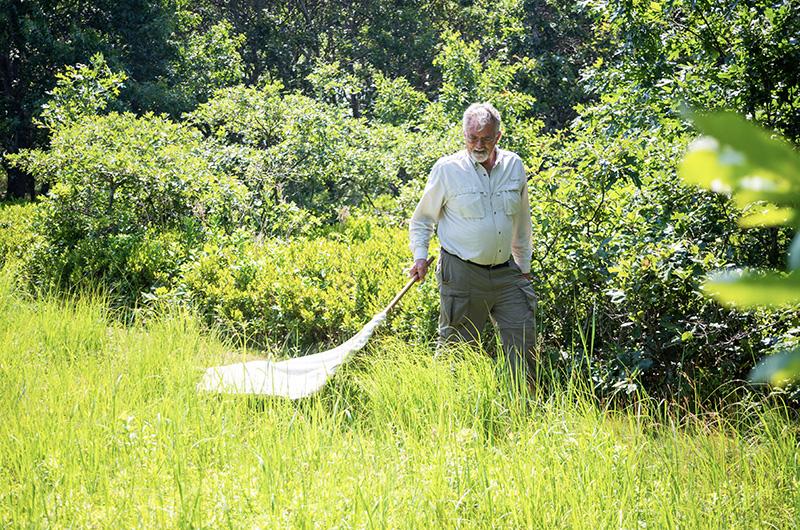As he takes the reins of the Island tick-borne illness prevention program, Patrick Roden-Reynolds aims to build on the work of his predecessor Dick Johnson, continuing yard sweeps and surveys, setting up standardized monitoring sites and keeping tick density maps up to date.
He also plans to be a listener.
“My priority for at least the first three, six months is just kind of listening to what the boards of health have to say, to what community members have to say,” he told the Gazette in an interview.
Mr. Roden-Reynolds is the new public health biologist at Island Health Care, the Vineyard’s federally qualified community health center. His position was created when IHC and the six Island boards of health joined a state-funded, regional public health collaborative last summer. Nantucket and Gosnold are also part of the collaborative.

In addition to tracking to the incidence of ticks and the diseases they carry through a variety of measures, Mr. Roden-Reynolds will be responsible for mosquito study and control (a job Mr. Johnson also performed), and tracking blue-green algae and cyanobacteria.
But ticks are the priority, he said.
Mr. Roden-Reynolds studied tick control as a graduate student at the University of Maryland. Most recently he spent a year in Las Vegas doing research on bighorn sheep.
A relative newcomer to the Island, he had been coming for summer vacations for a few years. He found out about the job serendipitously from two friends who heard about it.
“It seemed like a perfect fit for me,” he said.
Tick-borne illnesses, especially Lyme disease, are considered at epidemic levels on the Island.
Citing statistics and the history of tick-borne illnesses, Mr. Roden-Reynolds said up to 60 per cent of ticks are infected with some sort of disease in areas with habitat and climate similar to the Island. He also said scientists studying tick-borne illness in the Northeast are playing catch-up.
“It was [around] 1970 when Lyme disease was named and discovered, and it probably wasn’t until the ’80s or ’90s that research and control efforts started, so I think the disease is just kind of entrenched,” he said.
Deer and mice are the main vectors which spread disease to ticks, Mr. Roden-Reynolds said. He said after moving to Vineyard Haven last month, he began to notice the Island’s large turkey population and became interested in studying turkeys as tick hosts.
“It’s time to start thinking about everyone else, too: skunks, raccoons . . . squirrels, everyone can carry ticks,” he said.
And he emphasized the importance of prevention through education.
“[By] maintaining your yard and then just doing a tick check, you can live in tick habitat all your life and be fine,” he said.
Mr. Roden-Reynolds said he plans to continue the educational talks begun by Mr. Johnson, whose work studying ticks and tick diseases has spanned the last 10 years years. He wants to be be sure to include the youngest Islanders.
“Kids are always outdoors and they’re not really paying attention [to ticks],” he said. “But if you start them out young and then they are aware of the issue, it can go a long way to reducing risk.”







Comments (10)
Comments
Comment policy »